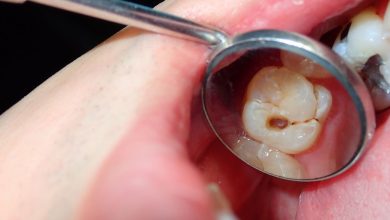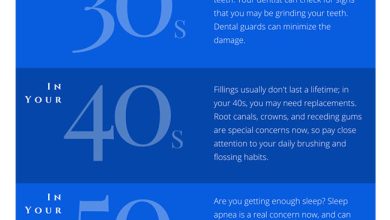Can You Reverse Tooth Decay? Discover the Surprising Method

Yes, tooth decay can be reversed through proper oral hygiene and regular dental care. Tooth decay is a common dental problem that occurs when the acids produced by bacteria in the mouth break down the outer layer of the tooth, leading to cavities.
However, with the right approach, it is possible to reverse this process and restore the health of your teeth. By brushing your teeth with fluoride toothpaste, flossing daily, and limiting your intake of sugary foods and drinks, you can prevent further decay and even help to repair early-stage cavities.
Additionally, regular dental check-ups and professional cleanings are essential for detecting and treating tooth decay in its early stages. Through these proactive measures, you can reverse tooth decay and ensure the long-term health of your teeth.

Credit: www.everydayhealth.com
Understanding Tooth Decay
Tooth decay, also known as dental caries, is a common oral health problem. It occurs due to a gradual breakdown of the tooth enamel, the protective outer layer of the teeth. What is tooth decay? It is a process that involves the demineralization of the tooth structure, which leads to the formation of cavities or holes in the teeth. Factors contributing to tooth decay include a sugary diet and poor oral hygiene. Excessive consumption of sugary foods and drinks provides an ideal environment for bacteria in the mouth to thrive, leading to acid production and enamel erosion. Poor oral hygiene practices, such as inadequate brushing and flossing, allow bacteria to accumulate and produce plaque, a sticky film that attacks tooth enamel. Common signs and symptoms of tooth decay include tooth sensitivity, toothache, and the presence of visible cavities. It is important to address tooth decay promptly to prevent further damage and potential tooth loss.
Can You Really Reverse Tooth Decay?
Can You Reverse Tooth Decay?
Can You Really Reverse Tooth Decay?
Debunking the myth of irreversible tooth decay
Extensive research has been conducted on tooth remineralization. Contrary to popular belief, it has been found that tooth decay may actually be reversible. The natural remineralization process plays a crucial role in this regard. Essentially, it involves the regeneration of tooth enamel by supplying adequate minerals to the teeth.
Promoting enamel repair is crucial when it comes to reversing tooth decay. Xylitol, a natural sweetener, has demonstrated surprising capabilities in this area. Xylitol works by inhibiting bacterial growth in the mouth and enhancing the process of teeth remineralization. It disrupts the acid production of harmful bacteria, preventing further damage to the teeth.
| How does xylitol work? | Enhancing teeth remineralization |
|---|---|
| Xylitol inhibits bacterial growth in the mouth. | Xylitol enhances the process of teeth remineralization. |
| It disrupts the acid production of harmful bacteria. | It provides the necessary minerals to the teeth. |
By incorporating xylitol into your dental routine, you can effectively combat tooth decay and facilitate the reversal of existing decay. Remember, prevention is key, and adopting a natural approach can significantly contribute to the overall health of your teeth.
Incorporating Xylitol Into Your Oral Care Routine
Can you reverse tooth decay? Incorporating xylitol into your oral care routine can greatly contribute to the prevention and reversal of tooth decay. Choosing xylitol-based oral care products is a key step towards promoting dental health.
| Toothpaste | Mouthwash | Chewing gum |
|---|---|---|
| Xylitol toothpaste helps reduce the acidity of the mouth and inhibits the growth of harmful bacteria. | Xylitol mouthwash can provide additional protection against tooth decay by promoting saliva production. | Chewing xylitol gum after meals stimulates saliva production, which aids in neutralizing acids and preventing plaque formation. |
Proper usage of xylitol products is crucial for their effectiveness. It is recommended to use xylitol products multiple times throughout the day to maximize the benefits. The dosage may vary depending on the product, so it is important to follow the instructions provided by the manufacturer.
In addition to using xylitol products, maintaining a balanced diet that is low in sugary and acidic foods is essential for preventing tooth decay. Practicing good oral hygiene, such as brushing twice a day and flossing regularly, further complements the use of xylitol for optimal oral health.
Other Natural Methods For Tooth Decay Prevention
Reversing tooth decay is indeed possible through various natural methods aimed at prevention. One effective method is fluoride supplementation, which offers several benefits. Fluoride helps strengthen enamel, making teeth more resistant to acid attacks. Using fluoride toothpaste and mouthwash regularly can significantly reduce the risk of developing tooth decay.
Diet modifications also play a vital role in maintaining healthier teeth. Reducing sugar intake is crucial as it deprives harmful bacteria of their primary food source. Additionally, incorporating tooth-friendly foods, such as fruits, vegetables, and dairy products, helps maintain a balanced diet and supports good oral health.
Regular dental check-ups and professional cleaning are essential for preventing tooth decay. Dentists can detect early signs of decay and provide appropriate treatment. Early detection and treatment can help prevent the further progression of decay and potentially reverse its effects.
By implementing these natural prevention methods and seeking professional dental care, individuals can take charge of their oral health and work towards reversing tooth decay.
Frequently Asked Questions On Can You Reverse Tooth Decay?
Can You Reverse Decaying Teeth?
Yes, it is possible to reverse decaying teeth through proper oral care, such as brushing, flossing, and regular dental check-ups. These practices can prevent further decay and promote the growth of healthy enamel.
How Long Does It Take To Reverse Tooth Decay?
To reverse tooth decay, the time will vary depending on the severity. It can take several months to a year or more with proper oral hygiene, a healthy diet, and regular dental visits. Treatment options like fillings or crowns may be required for advanced decay.
How Do You Revive A Decaying Tooth?
To revive a decaying tooth, visit a dentist who can perform a dental restoration procedure like a filling or a crown. These treatments remove decayed parts and restore the tooth’s function and appearance. Consult a dental professional for personalized advice and treatment options.
When Is It Too Late To Reverse A Cavity?
It is not too late to reverse a cavity until it reaches the point of penetrating the tooth’s enamel and entering the pulp. Early intervention through regular dental check-ups and proper oral hygiene can help prevent and treat cavities before they worsen.
Conclusion
It is possible to reverse tooth decay through a combination of proper oral hygiene practices and regular dental check-ups. Brushing and flossing daily, eating a balanced diet, and avoiding sugary foods and drinks can help prevent and reduce the progression of tooth decay.
However, it is important to remember that early detection and treatment are crucial for successful reversal. By prioritizing dental care and being proactive, you can take control of your oral health and maintain a healthy smile for years to come.





